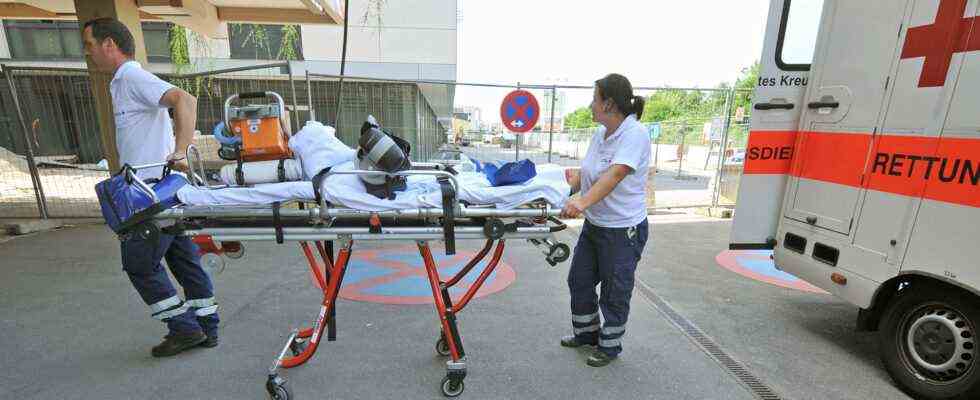Exclusive
As of: 16.09.2021 6:01 a.m.
Climate change does not only affect seas or glaciers. A long-term study shows the consequences for health. For example, heat waves lead to more hospital admissions.
Heat waves in summer, milder winters and extreme weather events are becoming more common due to climate change. How strongly this affects certain illnesses is shown by an analysis of the illness data of ten million insured persons of the BKK-Nordwest in cooperation with the University Medical Center Hamburg-Eppendorf (UKE) and the Helmholtz Center Hereon.
Illnesses rise dramatically
For the study that dem NDR Exclusively available in advance, diseases related to climatic changes were selected – including acute diseases such as heat collapse, heat exhaustion or heat stroke, but also indirect diseases such as hay fever and the resulting pollen asthma or so-called Lymen’s disease, which is transmitted by the spread of ticks will. The increase in these diseases was examined in more than ten million BKK insured nationwide in the period from 2010 to 2019.
As a result, the number of these climate-sensitive diseases increased dramatically in the period under study – in some cases by up to 50 percent. Heat waves, for example, lead to a measurable increase in hospital admissions, especially for babies and toddlers and people over the age of 75. “The evaluation shows the extent and that we are much closer to the negative consequences of climate change than many believe,” says Matthias Augustin from the Institute for Health Services Research (IVDP) at UKE, who was involved in the study.
Hay fever, skin cancer and tick bites
It looks similar with hay fever. Mild winters prolong the pollen season. During the study period, the number of those affected increased by almost 30 percent – also due to warmer temperatures. This facilitated the spread of the so-called Lymen borreliosis, a bacterial disease transmitted by tick bites. The study also shows a clear increase here.
In skin cancer, too, there has been a steady increase of 78 percent in outpatient admissions for BKK insured persons since 2011. “For some diseases, the cause is not only the climate, but other factors such as behavior, diet and lifestyle,” says Laurens Bouwer, climate researcher at Helmholtz Center Hereon. Often people’s behavior is the decisive link. In summer temperatures, for example, less clothing would be worn. That favor certain diseases.
Some occupational groups particularly affected
The number of days on which employees reported unable to work was also examined. Here, the analysis shows that the number of sick days has almost tripled in the past ten years. The rash during the record heat in summer 2018 is particularly noticeable. According to the analysis, certain professional groups are particularly affected, including for example asparagus pickers, salespeople and nurses.
The health system is not “weatherproof”, says BKK Northwest board member Dirk Janssen. In hospitals and care facilities, more attention must be paid to the climatic changes, also structurally. “The behavior of people must be made more sensitive to higher temperatures,” says Janssen. Urban development with wind lanes and green spaces can also help to counter the health consequences of climate change.

